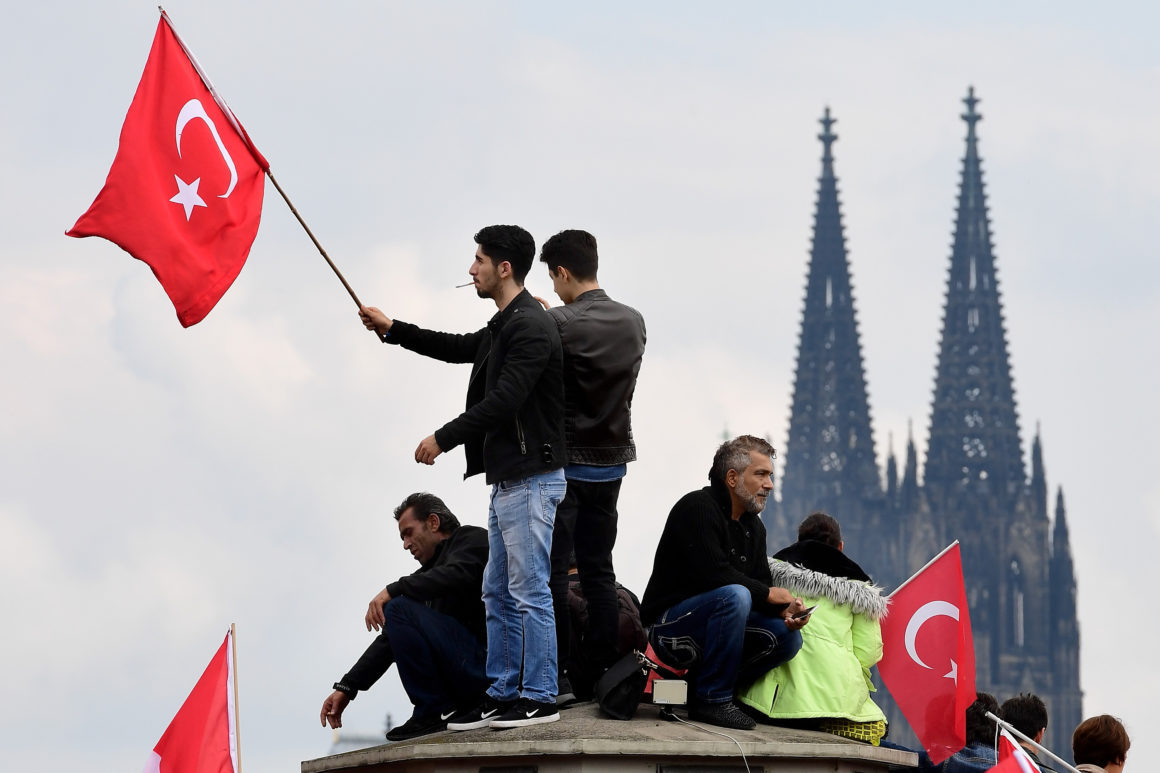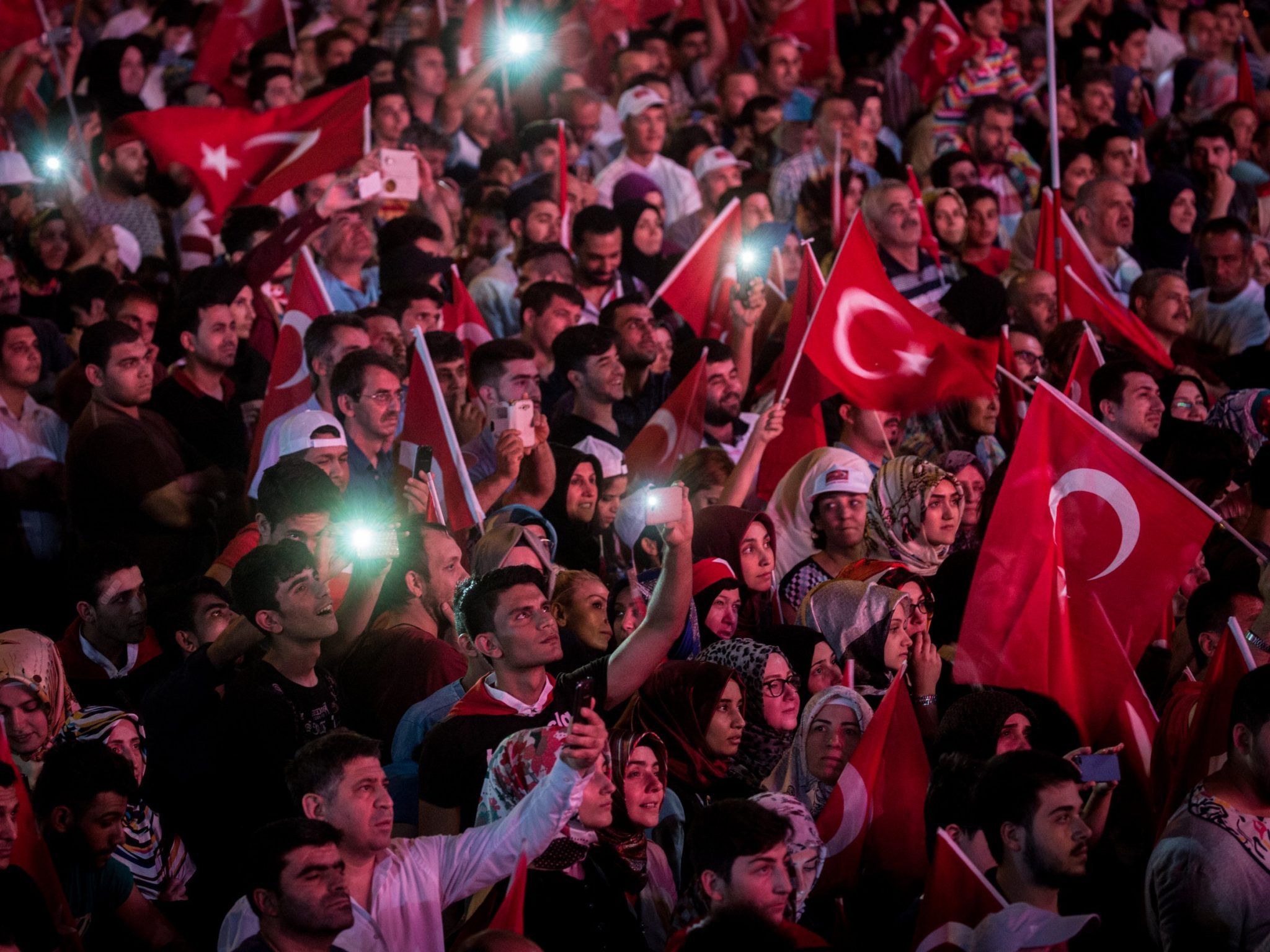
”Let’s be brutal: democracy is dying. And the most startling thing is how few ordinary people are worried about it” wrote Paul Mason, an expert on social justice, in the Guardian.
”Instead we compartmentalize the problem. Americans worried about the present situation typically worry about Trump – not the pliability of the most fetishist constitution in the world to kleptocratic rule. EU politicians express polite diplomatic displeasure, as Erdoğan’s AK party machine attempts to degrade their own democracies. As in the early 1930s, the death of democracy always seems to be happening somewhere else.”
Well, it is definitely not a spectator sport, as someone said.
But as Mason does a striking ‘tour d’horizon’ over Trump, Erdoğan and Putin surfing on the silence of their own masses, we know how deep the apathy of the peoples on certain parts of Europe. Hungary, Czech Republic, Slovakia and Poland’s brutal refusal of refugees display the failure of their peoples to internalize the universal notion of compassion and human dignity. Oblivion of their plight under the totalitarian rule during Cold War is a remarkably strong part in what Mason is describing as death of democracy.
Somewhere else in the periphery of Europe is another aspect of the new phenomenon: it is really puzzling why still so many Turks are still in such high admiration of their ‘Reis’ – as they call President Erdoğan – no matter how irrational and self-destructive his management gets.
How is it possible, a Dutch friend asked me repeatedly, that Turks living in safe, predictable, prosper conditions in Western Europe do not care a bit about their countrymen at home, when they are treated so ‘inhumanly’? What makes these people so aggressive against the countries they live in, against the people who express disagreement with the way Turkey is harrassed?
It is not that Erdoğan was solely responsible in whipping up people to bring out their dark side – the evil within. There is much more to it. Erdoğan knows that his rule was a golden opportunity to exercise revenge on what many of his followers see as decades long cultural apartheid, during which the elitist humiliation of the pious segments and religious congregations was profound. Soon after the foundation of the republic, after the abolishment of the califate, most of the religious groups had to go underground.
The AKP under Erdoğan symbolizes, for their grandchildren, a collective act of revenge; a victory of the riff-raff. The length and scale of the AKP’s rise and stay in power means also that a change of power by democratic means may no longer be an issue: its possible repercussions are perceived with horror by those masses, as a path to new period of oppression. This fear is the main element that defies any prospect for a return to democracy. Thus, it has also eroded whatever remained of morality and compassion within the society. It leaves room only for ‘dog eat dog’.
There is more to see, in all its simplicity, to understand why support for Erdoğan remain so unchanged. Recently I have found a load of food for tought in an ordinary chat that a scholar, Ayşe Çavdar – from University of Duisburg-Essen – had with a Turkish taxi driver, which she wrote about in news site Artı Gerçek.
She and the driver find themselves in a conversation where they agree about the unacceptabily of the coup but when it comes to the AKP, they sharply disagree, but in a remarkable way:
He doesn’t object to her comments on how corrupt and immoral the AKP is, just responds in phrases like ‘yes, but who hasn’t been before them?’ or ‘yes, the agriculture in Anatolia is dying, but when was it ever healthy?’ or ‘yes, Turkey is drifting apart from the world, but the world is also drifting apart from Turkey’.

Çavdar was struck by his fatalism. He was saying ‘that’s just the way things are (in the world), why should we expect muslims to change things?’.
His account revealed that he was swindled three times by ‘Islamic companies’ in the past 20 years and had lost all his savings. That was why he was working as a taxi driver.
Then she asked the question: ‘But this is reason for not supporting the party which such money has flown into, but for being opposed to it. Don’t you remember Deniz Feneri (Lighthouse) case? And the same AKP did not do anything to compensate your losses?”
To her surprise he agreed but said:
”Muslims finally could breathe easy, feel comfortable in Turkey.”
After talking at length (he had parked the car because he wanted to talk) with him, Çavdar summarized the way of his reasoning.
”This is what I understood” she wrote:
”If he had accepted the notion that what made the AKP build his power on was his and friends’ and neighbours’ savings; that it was the capital for corruption and lawlessness, all his life story would because of the decisions he made on religious concerns go down in drain. The meaning he gave his life would be shattered on so many levels. Despite the fact he knew the injustices of the state, he supported the AKP because he believed that something good would come out of such evil.”
When pressed by her as ‘come on, do you really believe that?’ his response was blunt: ”Do I have any other choice?”
”We had had to endure so much, so should you!”
Çavdar’s account is, of course, only a part of the reality. This man represents an AKP supporter, an incurable Erdoğan admirer from a distance, who chose to live in a lie.
Then there are others. Another segment is comparable to those in Russia. Like the grocery owner in Berlin that some time ago had talked to. Not complaining about his well-being, and saying that he had voted for Erdoğan only once, he wouldn’t let me discuss his isolation in international scene. ‘Enough is enough and he is saying it to everyone. He thinks and talks exactly like us’ he said, meaning many like him abroad. This attitude is the exportation of the ‘revenge’ pattern against the elite many feel at home, in Turkey.
The domestic masses of the pious middle class in general, still at his ‘social adolescence’, it was about a sense of equality in the early phases of the AKP rule. No longer. Because of the divisive crisis politics Erdoğan pushed so mightily, it has now turned into a sense of collective superiority, but with no intellectual arsenal that would help consolidate it. The support is all dependent on the employment, and social privileges like housing and health care. Once the economy’s faltering gains pace, this middle class, so visible in its lumpen patterns and lack of devout morality, will stand ready to abandon the very power which has fed it.
Democracy has nothing to do, no meaning, in this context.
It stands with presence of a benevolent leadership; what we see currently is a contagious free fall, everywhere.




1 Comments
AtaBrit
What a very confused and deceiving opening salvo, trying somehow to introduce the argument that political problems in Turkey can be catergorised with those being experienced elsehwere, when in actual fact they can not be, not by any stretch of the imagination, the very foundations, the social foundations are strikingly different.
And, there is a common xenophobia is there? Nothing to the degree of outright racism and exploitation of immigrants at all levels in Turkish society! No one atands up for others’ rights be they immigrants or kurds! It is anuncaring and entirely apothetic mindset that can ignore hundreds crowdedly living in squalor in your local park ill from cold and wet … And yet so NoTHing but blame eveyone else!!
Maybe Baydar would be better fighting for the future of Turkey in Turkey!
Comments are closed.